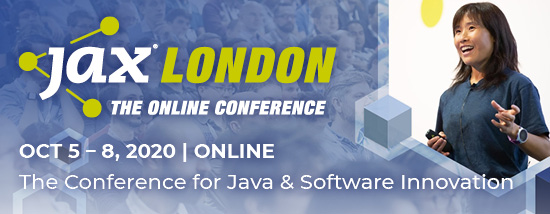A research study by The National Center for Women & Information Technology showed that “gender diversity has specific benefits in technology settings,” which could explain why tech companies have started to invest in initiatives that aim to boost the number of female applicants, recruit them in a more effective way, retain them for longer, and give them the opportunity to advance. But is it enough?
Three years ago, we launched a diversity series aimed at bringing the most inspirational and powerful women in the tech scene to your attention. Today, we’d like you to meet Ellis Toms, from Gearset.
Today’s Woman in Tech: Ellis Toms, Gearset
 Ellis Toms came to Gearset right after graduating with a first in Geography from Exeter University. She was Gearset’s ninth employee, and the company’s first marketing hire. Starting out as a technical content marketer, Ellis now manages Gearset’s events team, community advisors program, and marketing internships.
Ellis Toms came to Gearset right after graduating with a first in Geography from Exeter University. She was Gearset’s ninth employee, and the company’s first marketing hire. Starting out as a technical content marketer, Ellis now manages Gearset’s events team, community advisors program, and marketing internships.
When did you become interested in technology?
To be honest, what first got me into technology was joining Gearset, just after graduating from university. My interview at Gearset was my first foray into the technical world, apart from some work in environmental science. Meeting the team and seeing how passionate they were about building a DevOps tool to help this huge community of users made me realize how exciting and interesting this completely alien world of technology could be.
How did you end up in your career path?
Throughout my academic career, at school and then at university, I always enjoyed writing. I mostly leaned towards the humanities rather than the STEM subjects, not because I didn’t enjoy them, but because I found that my strengths aligned more with the humanities. I chose to study Geography at the University of Exeter, partly because I could explore a really wide variety of environmental topics – including palaeo-environmental studies which have always interested me. I also wanted to be able to work on my research and analytical skills, and learn how to apply them to my writing. For me it was the best of both worlds – writing plus analytical and technical lab work.
I wasn’t entirely sure what career path to follow, other than knowing I wanted my role to involve the skills that I enjoyed the most: writing, research and analytical work, and being able to apply my ‘need to organise’. It occured to me that something in marketing or events management might be a good fit – and I’d really only started to explore job possibilities when I found Gearset.
Did you receive support from your family and friends? Do you have a role model?
I’ve been fortunate that family, friends and colleagues have always been supportive. It’s hard to pick out a specific role model really, as there have been a number of people that have always inspired me: passionate teachers and lecturers that encouraged me and pushed me to achieve my potential; and my incredibly talented colleagues at Gearset, who I get to learn from every single day. Having joined Gearset at such an early stage in my career, I really do count myself lucky that I’ve been surrounded by such a smart and dedicated group of people – it’s been the best way to learn and grow professionally.
Did someone ever try to stop you from learning and advancing in your professional life?
No, I can honestly say that in my case no one has tried to stop my career progression – in fact, quite the opposite. I hope my experience shows that we’re beginning to see a positive change in culture and attitudes about what women can do in tech.
A day in Ellis’ life
I joined Gearset as a content writer and the first official marketer. At that time, there were 8 people in the whole company. Three and a bit years later and I’m still at Gearset, which now has over 75 people in the company, and my role has shifted as we’ve grown.
I’m currently the Events & Marketing Manager within the Marketing team. I naturally gravitated towards event coordination, especially after interacting more with the Salesforce community. I love getting to meet more of the community and build those relationships, and being able to make their lives easier with DevOps insights or advice is incredibly rewarding to me. That’s how I’ve ended up running our events function within marketing.
I should mention though that, as we’re still a relatively small team, we work really collaboratively together and get stuck in wherever we’re needed! This might mean that on any given day, as well any events-related activities, I might also be working with recruitment, or running case study interviews, or helping out with content creation. It’s incredibly varied, and I’ve always loved the fast-paced energy of Gearset. If something crops up that needs to be done, we just get it done – which is really exciting.
What are you most proud of in your career?
Looking back, there are a few things that stand out to me. Firstly – and it may sound a bit cliche – but I think the way we come together as a team is something to be proud of. All the work we do is a team effort. Teamwork really does make the dream work! When something with a tough deadline comes up, or if I’m working on something where I need extra support, I can always rely on my teammates to make sure it gets done to the best of our ability. So I’m very proud of our team.
The other thing has to be when I took over running our Dreamforce presence. Dreamforce is always the biggest event of the year for the entire Salesforce ecosystem, and it’s one of the biggest tech events in the world. Over 160,000 Salesforce professionals gather for 4 days to learn and network, and for all the vendors in the ecosystem (including ourselves) it’s a huge and impactful business opportunity.
Obviously, it’s incredibly important that we make sure our sponsorship (which involves two booths in both the developer and customer expos) runs as smoothly and as successfully as possible. When I took over more of the work that goes into the event, I found it to be one of the most stressful experiences of my working life. I really felt the pressure to make sure we delivered, and it was pretty much all I thought about in the months leading up to it. But once we got out there and I saw everything coming together, including the team working so hard on the booth and getting to speak to hundreds of passionate professionals every day, it was just one of the most rewarding experiences.
I love getting to meet more of the community and build those relationships, and being able to make their lives easier with DevOps insights or advice is incredibly rewarding to me.
Why aren’t there more women in tech?
I think it could come down to cultural reasons. Growing up, you don’t see many women depicted in tech, so we don’t have those role models. If we don’t see people who we can relate to in those roles, it gets ingrained at such an early age so that most girls at school tend to gravitate away from STEM subjects.
The other point to consider is that, although things have changed and progressed since I was at school, back when I was growing up technology was presented (at least to me) as something for the boys – “boys and their toys” and all that. And learning technology at school wasn’t really a thing. We had IT lessons but they were quite perfunctory, and it wasn’t presented to us as a possible career path. That really only left the choice between humanity subjects, and then the classic STEM subjects of science and math.
What I wish I’d learned sooner – and what I think would help get more women into tech – is that you don’t have to have studied a STEM subject or something particularly technical. I come from a background in humanities, but the skills that I learned from studying those subjects, like how to communicate clearly, or how to use my research and analytical skills to construct arguments and build data-driven campaigns, are absolutely essential in tech. The tech sector is absolutely reliant on these sorts of skills, which you can build regardless of the subjects you studied. The subjects you studied are a platform to build on, not a barrier to the tech sector.
Could you name a few challenges (or obstacles) women in tech face?
I think the biggest challenge is imbalance. The tech industry is an overwhelmingly male-dominated sector, so when people think of big names in tech they usually think of the likes of Steve Jobs or Elon Musk. Leadership roles in tech seem even more male-dominated than the sector as a whole, and that perception doesn’t help attract talented women to the sector.
I don’t think there’s one easy answer to fixing the lack of women in tech. Fundamentally, it needs a change of culture, and it’s hard to change culture – especially to change it quickly. The need for greater workplace equality and inequality is a wider issue than just the tech sector that all businesses need to be aware of.
At Gearset, we recognize that we have to be proactive if we’re going to be a more diverse company. We’ve started trying to address these challenges: we champion the ‘Women in STEM’ movement wherever we can, attending careers fairs and events such as STEM Women in Technology. We hope that this helps spread awareness that women can and should work in tech.
We’ve also been changing how we recruit to make it more inclusive. We’ve changed how job ads are written to focus only on the essentials for the role because it’s been shown that women are often more reluctant than men not to apply for jobs if they don’t meet all of the criteria in the job description. And Gearset tries to ensure that all interview panels are made up of both men and women, providing a fair, unbiased experience for candidates. Small improvements like these can make a significant difference when it comes to women’s experiences throughout the interview process and beyond.
I don’t think there’s one easy answer to fixing the lack of women in tech. Fundamentally, it needs a change of culture, and it’s hard to change culture – especially to change it quickly.
Would our world be different if more women worked in STEM?
The tech sector leads the way in innovation – we’re right at the cutting edge of progress. But in terms of diversity we’re often lagging behind. It’d be great if we managed to get more women working in STEM, so we can lead the way in diversity as well. Having more women working in STEM would bring more balance to the workplace, more diversity in opinions, more equal pay and new cultural norms. That’s where we’ll see improvements and growth. And it’s not just about one particular industry or company, but the way that STEM areas are perceived in our culture. It’ll show girls growing up that they belong in STEM as much as they belong anywhere else.
The discussion about diversity is gaining momentum. How long will it take to see results from the current debate?
So long as we as individuals, businesses and industries remember that it’s still a big problem, progress will continue. But it needs collective effort from businesses and industries to recognize the ongoing issues and barriers to entry, and then collective action to make progress. We’re starting to see more women in STEM subjects through recent efforts but we’re a long way from proper equality and diversity in the workplace. So it really has to be a conscious effort on our part to offer equal opportunities.
What advice (and tips) would you give to women who want a tech career?
They should go for it! It’s not about the subjects you studied at school; it’s about the skills you’ve developed. If you have a passion for what you do, you can apply it to any industry if you dedicate yourself to it. I didn’t join Gearset with a passion for Salesforce DevOps – I didn’t even know what DevOps meant! But I loved researching, and applying my technical skills to writing. I discovered a passion for helping our users and for our product in an industry I never thought I’d end up in. If you know or even think you want it to be in tech then don’t be put off by stereotypes. We need more women like you: driven, keen to learn and passionate about what they do.
More Women in Tech:
- Women in Tech: “What’s important is that my work is positively influencing the world”
- Women in Tech: “80% of all jobs are never posted publicly”
- Women in Tech: “Women have been able to bring a new perspective to the tech industry”
- Women in Tech: “Take responsibility and ownership for your own growth”
- Women in Tech: “Celebrate your wins, big and little”
For even more Women in Tech, click here
The post Women in Tech: “Teamwork really does make the dream work!” appeared first on JAXenter.
Source : JAXenter




















